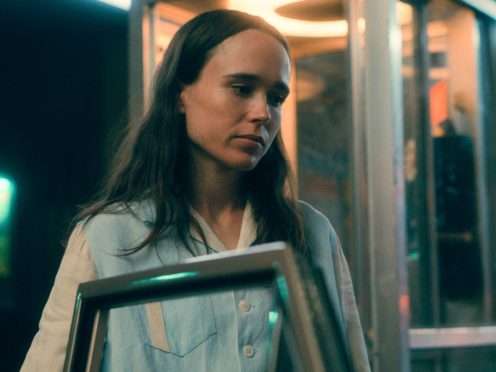Elliot Page has described the discomfort he felt in his body before coming out as trans, and said getting top surgery was “not only life-changing but lifesaving”.
The Umbrella Academy and Juno star, 34, came out as transgender in December in an emotional Instagram post, writing: “I feel lucky to be writing this. To be here. To have arrived at this place in my life.
“I feel overwhelming gratitude for the incredible people who have supported me along this journey.
— Elliot Page (@TheElliotPage) December 1, 2020
“I can’t begin to express how remarkable it feels to finally love who I am enough to pursue my authentic self.”
Page, who came out as gay in 2014, told Time magazine he was already recovering from surgery in Toronto at the time he posted the statement on social media.
He said: “The difference in how I felt before coming out as gay to after was massive.
“But did the discomfort in my body ever go away? No, no, no, no.”
With deep respect for those who came before me, gratitude for those who have supported me & great concern for the generation of trans youth we must all protect, please join me and decry anti-trans legislation, hate & discrimination in all its forms. pic.twitter.com/5yr8TYywTn
— Elliot Page (@TheElliotPage) March 16, 2021
Discussing the decision to have an operation, Page said it has made it possible to finally recognise himself when he looks in the mirror, adding: “It has completely transformed my life.”
He added: “I’m really excited to act, now that I’m fully who I am, in this body.
“No matter the challenges and difficult moments of this, nothing amounts to getting to feel how I feel now.”
Page also says that coming out as trans was “selfish” in one respect, adding: “It’s for me. I want to live and be who I am,” but said he also felt a moral imperative to do so, given the disproportionate level of violence and discrimination other trans people face.
Efforts to criminalize trans kids are deadly and we need to fight back against Alabama’s HB1/SB10. Trans kids’ lives depend on stopping this bill. Tell Alabama lawmakers to #ProtectTransKids #NoHB1 #NoSB10 @ACLUAlabama
— Elliot Page (@TheElliotPage) March 5, 2021
He said: “My privilege has allowed me to have resources to get through and to be where I am today and of course I want to use that privilege and platform to help in the ways I can.”
He has been disturbed by a flurry of bills in state legislatures that would make it a crime to provide transition-related medical care to trans youth, as well as other anti-trans bills and laws around the country, including those that ban transgender girls and women from participating in sports.
Page said: “We know who we are .People cling to these firm ideas [about gender] because it makes people feel safe.
“But if we could just celebrate all the wonderful complexities of people, the world would be such a better place.”
